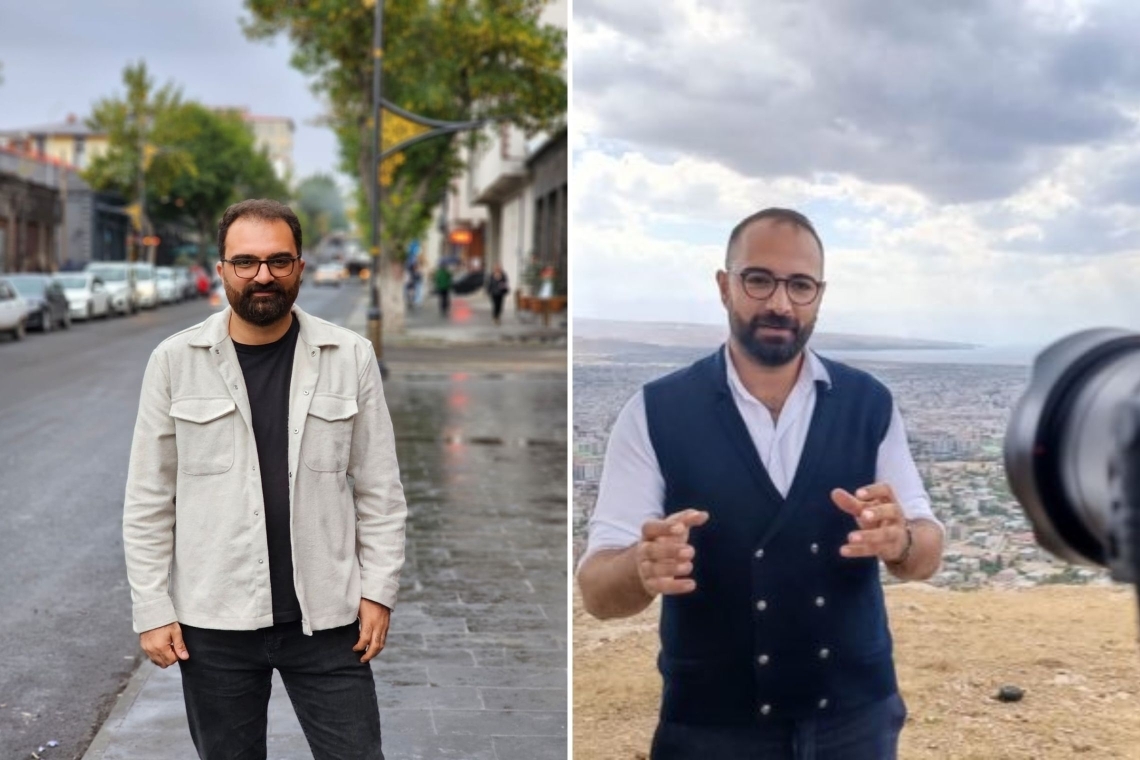Journalists Ruşen Takva and Kadir Cesur were detained on September 28 while reporting on refugee crossings near Turkey's border with Iran. Accused of "unauthorized entry into military zones," the journalists were held briefly before being released, but their cameras and memory cards were confiscated. They spoke to the Media and Law Studies Association (MLSA) about their experience and the challenges they face in covering such sensitive issues.
DENİZ TEKİN
Kadir Cesur, Van correspondent for Gazete Duvar, shared that while they had encountered difficulties at the border before, this incident was unprecedented. The two journalists were in Van's Özalp district near the Turkey-Iran border to investigate Afghan refugees crossing into Turkey after Iran announced plans to deport them. While waiting near a tent they believed belonged to shepherds, military personnel arrived, accusing them of entering a restricted military zone. Despite showing their press cards, they were detained for several hours and taken to Dorutay Gendarmerie Station.
Cesur described the confusion at the scene, stating, "We were three to four kilometers from the border walls, and there were no signs, flags, or soldiers indicating a restricted zone. We were still accused of violating a military zone, and our camera equipment was confiscated despite no evidence of illegal activity." He questioned the rationale behind the seizure of his camera, asking, "If a device is confiscated, it’s usually because it’s connected to a crime. But what crime could my camera possibly commit?"
Despite presenting their turquoise press cards, issued by the Turkish Presidential Directorate of Communications, and a press traffic permit for their vehicle, the journalists were still subjected to the harsh measures. "We've experienced issues at the border before, but never something like this," Cesur remarked. He expressed frustration that essential journalistic tools like his camera were taken, comparing the situation to a tailor having their scissors seized, rendering them unable to work.
Cesur and his lawyer have filed legal objections to reclaim the confiscated equipment, which he described as arbitrary. He stressed the importance of a camera for a journalist’s work, adding, "Taking a journalist's camera is like taking a painter’s brush—it cripples our ability to do our job."
Journalist Ruşen Takva echoed Cesur’s concerns, pointing out that such actions aim to intimidate journalists. "The goal here is to send a message to other journalists through us," he said, adding that such restrictive measures only harm press freedom and worsen Turkey’s standing in global press freedom rankings. He emphasized that despite these obstacles, journalists remain committed to their duty of providing accurate information to the public. "We are not intimidated by these actions. Our job is to ensure the public gets the truth, and we will continue to do that," Takva said.
Both journalists highlighted that such incidents reflect a broader crackdown on press freedom in Turkey, particularly around sensitive issues like border security and refugee movements. Despite the ongoing challenges, Cesur and Takva vowed to continue their work, noting that journalism is a public service and should be supported, not hindered. "We cannot turn a blind eye to the realities of life and the people," Cesur concluded.



